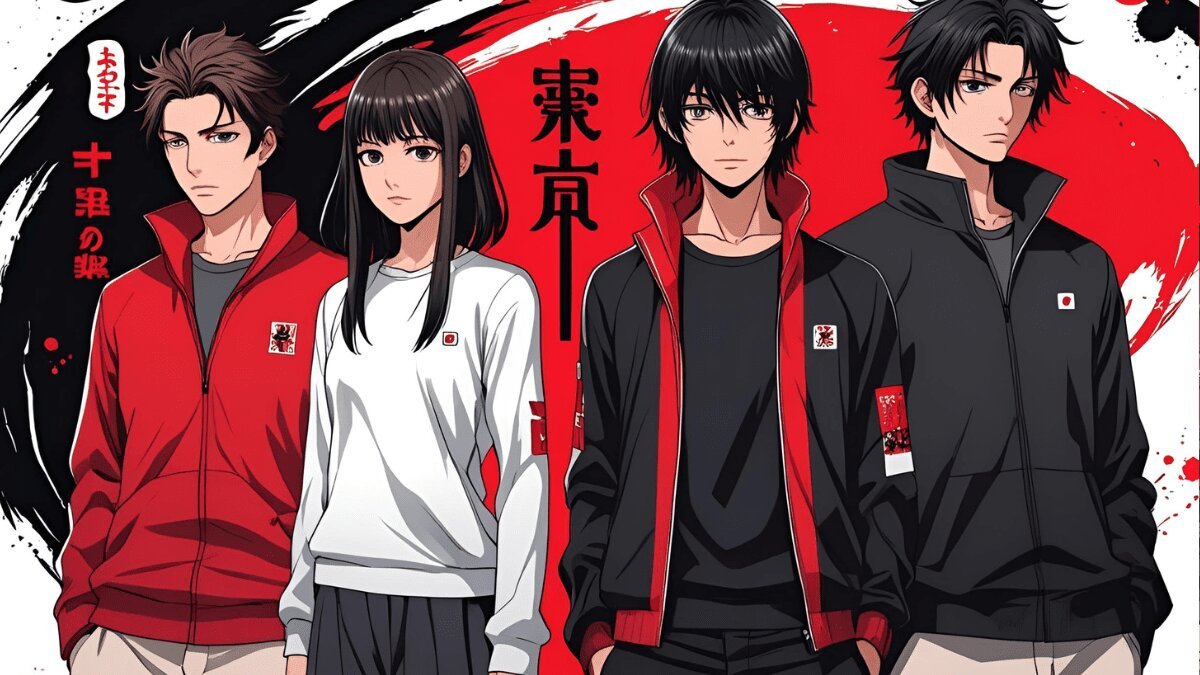Few anime characters ignite debates quite like Light Yagami, the brilliant student who discovers a deadly notebook and decides to become a god of justice. Death Note, written by Tsugumi Ohba and illustrated by Takeshi Obata, poses one of the most compelling moral dilemmas in anime: if you had the power to kill anyone instantly, would you use it to change the world?
Light’s journey begins with a noble idea—erasing criminals to create a peaceful, crime-free society. But as his body count rises and his ego inflates, many fans wonder: was he ever really a hero? Or did he simply use justice as a mask to justify murder?
Light’s Motivation: Justice or Hubris?
When Light first encounters the Death Note, his intentions seem almost admirable. Sick of the rising crime and corruption in the world, he believes criminals deserve immediate punishment. And with a genius-level intellect, he doesn’t hesitate to act.
But what begins as targeted justice quickly morphs into authoritarianism. Light becomes “Kira,” an omnipotent figure feared by all and revered by some. His dream of a “better world” begins to center around himself as its god.
So—was he trying to save the world, or reshape it in his image?
Pro-Hero Argument: Light eliminates global threats, causes crime rates to drop, and instills fear in those who would harm others. To some, his actions are extreme but effective. In a world where justice systems fail, Kira is the necessary evil.
Pro-Villain Argument: He kills without trial, suppresses dissent, and even eliminates innocent people (like FBI agents or Naomi Misora) who threaten his identity. He acts not for justice, but to maintain control. His initial ideal is lost in personal power.
The Kira Cult: A World That Embraced Him
Light doesn’t work in isolation—he becomes a global icon. As Kira, he gains millions of followers who see him as a divine force of justice. This brings up a major theme in Death Note: how quickly people are willing to trade freedom for safety.
The show doesn’t shy away from this uncomfortable truth. Many civilians, even outside Japan, express gratitude toward Kira. Some even worship him.
Does mass approval justify moral compromise?
To his supporters, Light created order in a world that lacked it. But to critics (and viewers), this raises terrifying parallels to real-world authoritarian regimes—where order often comes at the cost of humanity.
L vs. Light: The True Battle of Ideologies
One of the most iconic rivalries in anime is that of Light Yagami vs. L Lawliet. The two are intellectual equals, representing opposing philosophies.
-
L believes in the rule of law, investigation, and due process—even if imperfect.
-
Light, under the Kira persona, believes in absolute punishment and immediate retribution.
This clash isn’t just a detective story. It’s a philosophical war. And many fans find themselves sympathizing with both.
L’s methods are invasive and cold, but he never kills. Light, on the other hand, is charismatic and results-oriented—but uses murder as a tool.
The genius of Death Note lies in how it constantly shifts the moral compass. The audience is made to question: who deserves power? Who defines justice?
When Light Crossed the Line
Throughout the series, Light repeatedly crosses moral boundaries that even his early self might not have condoned:
-
He uses Misa Amane and discards her loyalty when convenient.
-
He manipulates and sacrifices Rem, leading to L’s death.
-
He kills the innocent, even when it’s unnecessary for justice.
These acts show a slow but steady erosion of Light’s original intent. The moment he chooses to kill his own father, Soichiro Yagami, rather than risk exposure, it’s clear: he is no longer saving the world—he’s saving himself.
By the end of the series, his downfall is as much about pride as it is about justice. His famous breakdown—screaming as Near exposes him—is a tragic moment of a man who believed he was untouchable.
The Real Message of Death Note
Death Note isn’t a simple hero-vs-villain story. It’s a psychological thriller that explores the seductive nature of power and the cost of self-righteousness. Light Yagami is both a cautionary tale and a character study in hubris.
While fans may admire his intelligence, confidence, and ability to outmaneuver authorities, his downfall reminds us: justice without accountability becomes tyranny.
The brilliance of Light’s character lies in this duality. He forces us to ask uncomfortable questions:
-
If we had the Death Note, would we use it?
-
Would we be any different?
-
Is it truly possible to enact justice without corruption?
Conclusion: Villain or Hero?
So, is Light Yagami a villain—or the true hero of Death Note?
Villain? Yes—he kills indiscriminately, manipulates those close to him, and ultimately seeks to rule through fear. His justice turns into self-preservation, and he dies as a delusional megalomaniac.
Hero? Perhaps—he genuinely wanted to make the world better, and his initial intentions were rooted in frustration with real-world flaws. Many of his followers saw hope in him when institutions failed.
But the truth is: Light Yagami is both.
He is what happens when intelligence, ambition, and morality collide without limits. He is justice twisted by ego. And that’s why, years later, we’re still debating him.
Because he’s not just a character—he’s a mirror.


